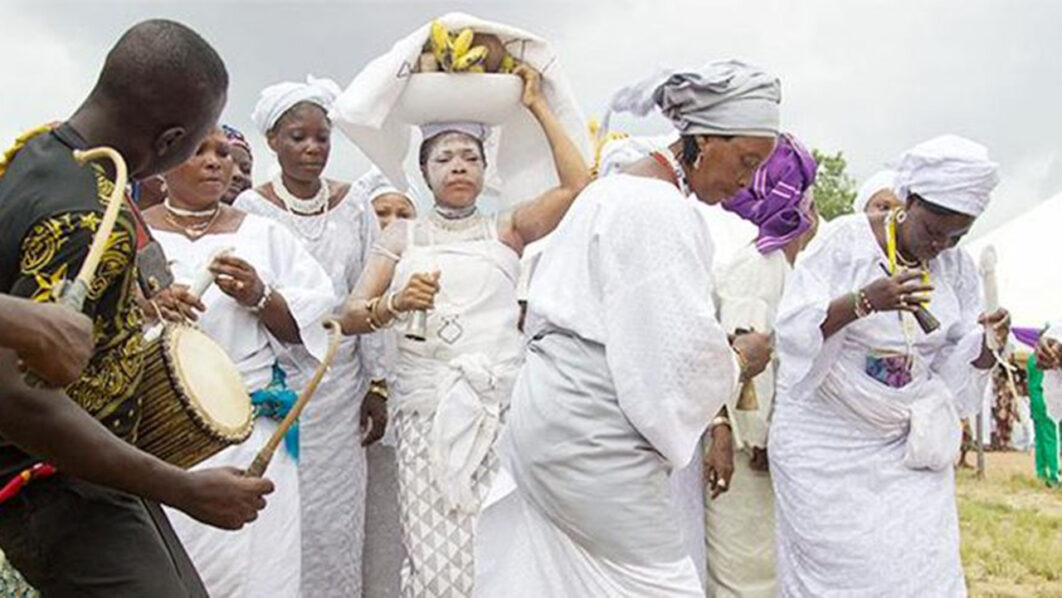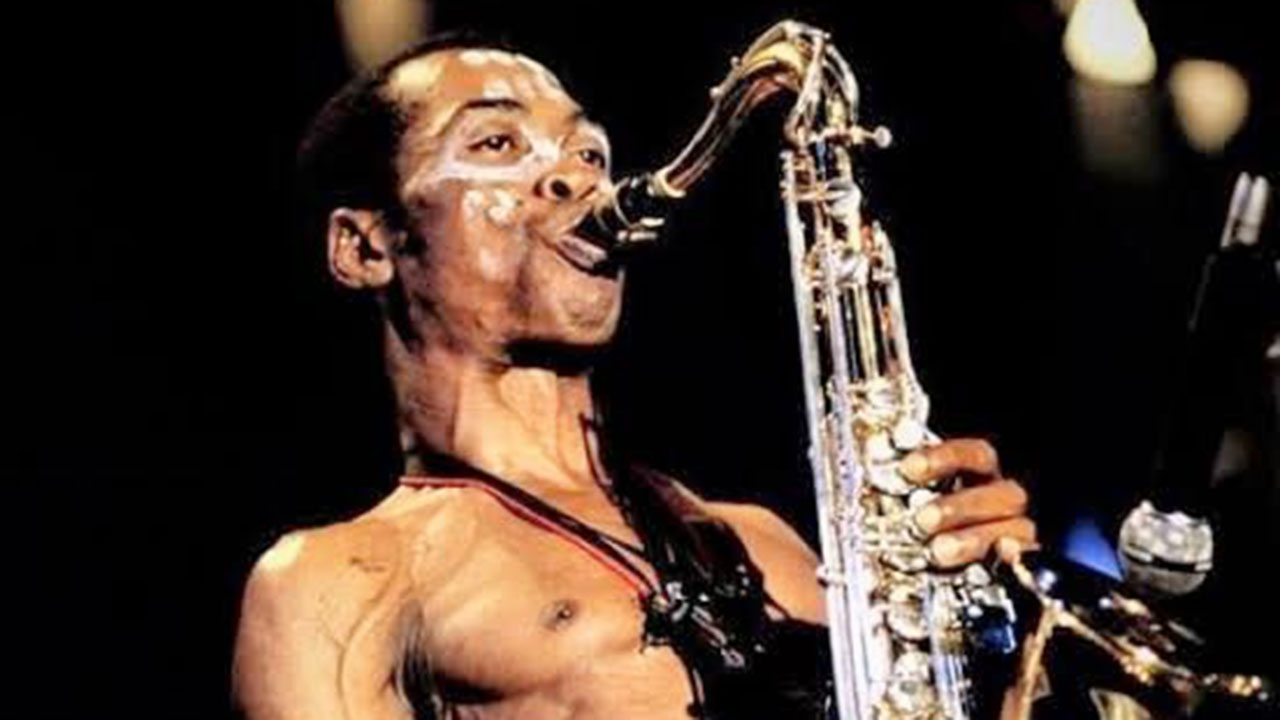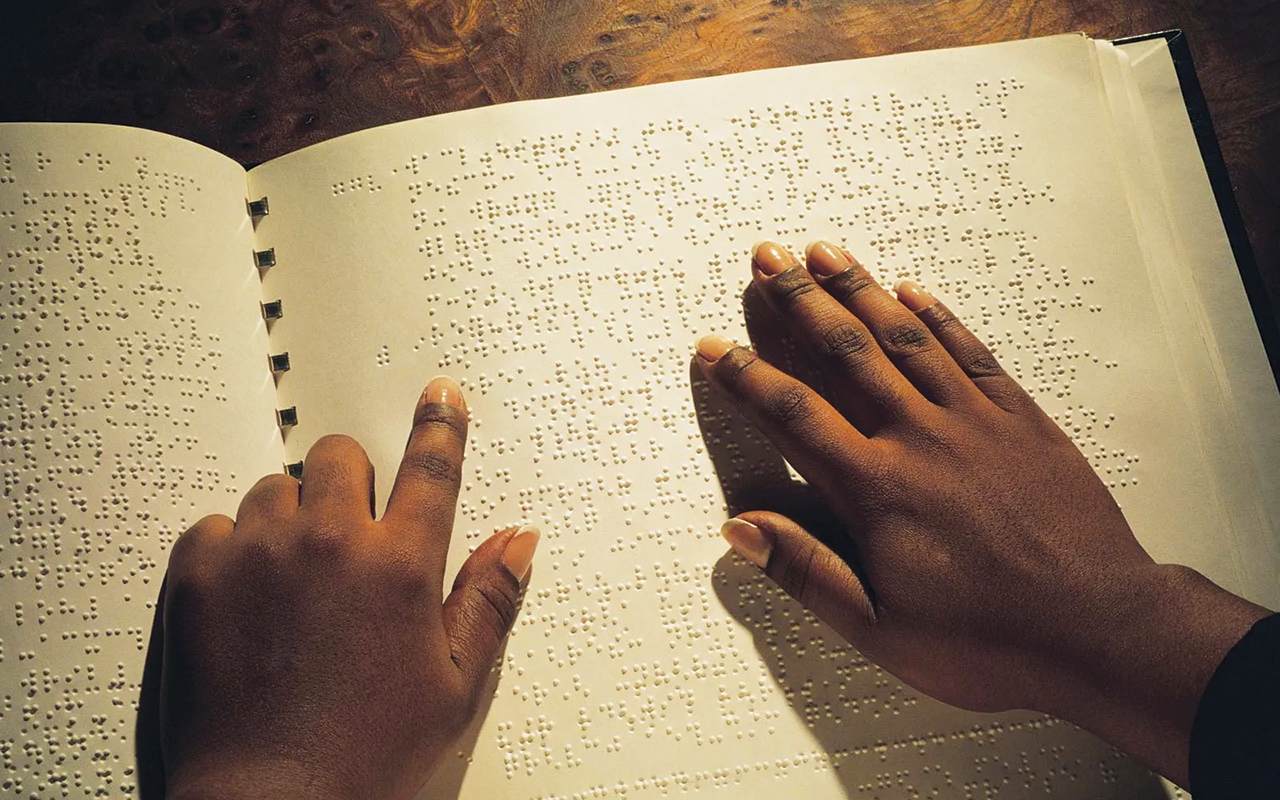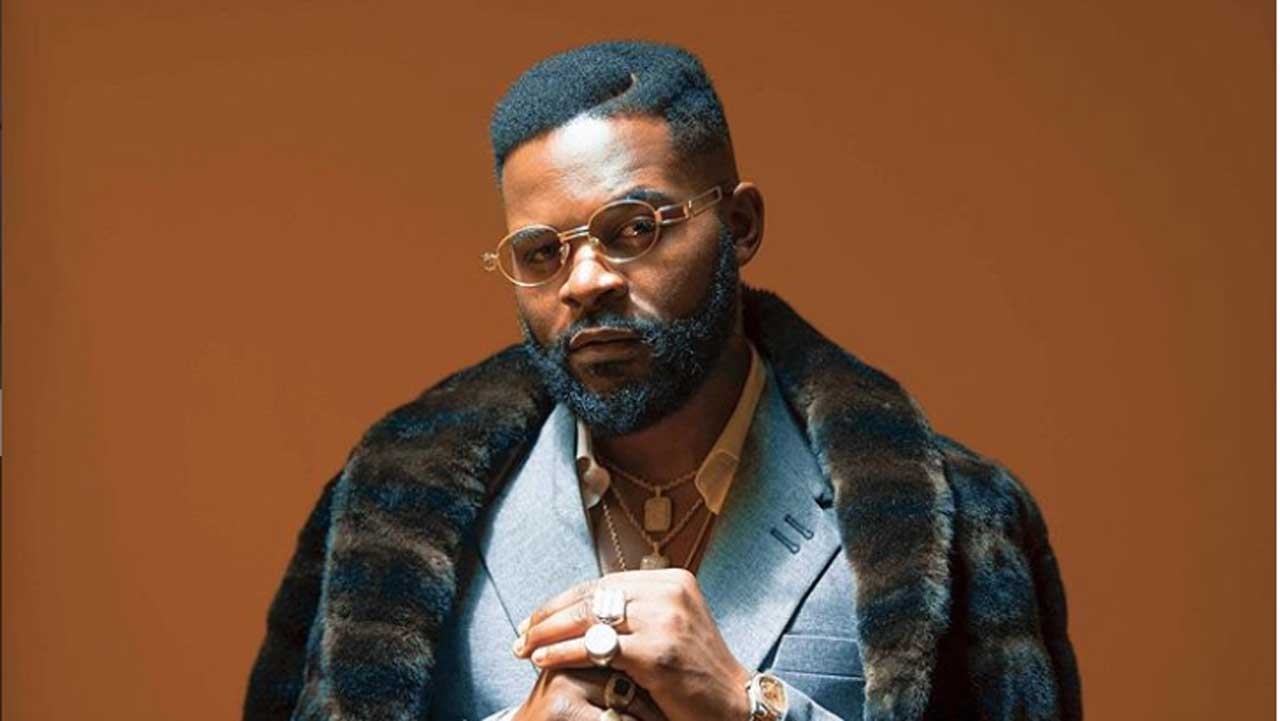
The hornet’s nest of arts and culture community was recently stirred when Nigeria’s former number one citizen, Chief Olusegun Obasanjo, called for the preservation of Africa’s cultural heritage at the 50th birthday gig of Aralola Olamuyiwa, the female drummer.
Stressing the importance of culture, the former Nigerian president enjoined Africans to jealously guard their cultures so that they will not erode the African identity.
Lamenting how many African cultures are being consigned to the background in the name of embracing western culture, the former Head of State noted that “culture is the totality of who we are,” adding, “some of our cultures, including food, language, cloth, among others, have been pushed to the background to the extent that local languages are now seen or referred to as vernaculars within various countries.”
Affirming his belief in the Christian faith, he said Nigerians and other African countries should work to reverse the ugly situation. He disclosed that whosoever says Orunmila, the Orisha of Wisdom, knowledge, and Divination, is the creator of Ifá and Babalawo concept, is nothing should be regarded as a bloody fool.
Although, this is not the first time the elder statesman is making this call; during the days of apartheid in South Africa, he urged traditional leaders in that country and other African leaders to invoke their various gods against those behind the oppressive economic and political system in South Africa and elsewhere in Africa, whether the call was responded to then, leaves much to be desired.
Now, he is renewing the call in response to the high level of disorder and wanton crimes that are alien to us, which our various cultures though to have put in check had the adherents of these cultures being in full control of the society.
Responding to the renewed call, Dr. Ajokpa-Ogene Omo of Black and Proud Message Group, Benin, Edo State, noted that the African elder statesman calls is rhetorical in the sense that during his regime as a civilian President, he advertently removed history from primary and secondary school curriculums and paid lips services to the arts and culture sector to the extent that Nigeria has no definite cultural policy, as could be seen in other countries of the world.
He noted that apart from the Festival of Arts and Culture (FESTAC), which Obasanjo-led administration hosted in 1977, his policies during his second coming killed culture, adding that the relegation of a people’s history and culture is a relegation of the total race.
The activist noted that culture plays multifaceted roles in any society, which is the reason any serious-minded nation would do anything to protect their culture and its adjuncts — history, traditional religion, arts, food, language, among others.
Allowing a people’s culture to plummet to the background, amounts to classifying such a race or group of people as inferior and less important among the comity of nations.
Citing countries, including India, China, Japan, among others, as examples, he observed that these countries would never toy with their cultures, no matter their level of exposure to other cultures of the world.
They are never ashamed to speak their languages in any country they find themselves or put on their traditional attire or food. They would even request for permission to build schools for their children in foreign countries.
This did not just start with the citizens of these countries, rather it is a crafted policy of their governments to make them believe that they are not inferior, but superior to others in all circumstances, and this has become a way to establish their presence in any country, they find themselves; a subtle diplomacy, you may say. It has also become a way to sale their culture to the outside world and as well instill them among those of them that live outside their borders.
Omo noted that culture is holistic and has the intrinsic wisdom and body of knowledge both celestial and secular that would enable a people to develop in their own way, and a move outside of it would lead to struggle and imitation of other races values, which is the situation we are facing in Nigeria and Africa.
Pointing on ways to make Nigerians go back to their culture and protect their local heritage, Professor Ifegbesan Peters of Ogun State University, Ago Iwoye, noted that culture is pivotal to the growth and development of any society, stressing that for Nigeria to reverse the hand of the clock, Federal and state governments have to engage a systematic approach that would embrace education, and the orientation and re-orientation of the people to knowing the gains the people and the country stand to have by believing and practicing our various cultures.
He pointed at the study of history, as a conservator, saying the subject should be one of the compulsory subjects or courses of study in schools. It would be better to teach it from primary schools to tertiary institutions with the schemes and curriculums drawn to reflect local realities, the various events that have made us strong and united, our heroes and heroines, value system, politics, wars and conflicts, events and festivals, and even various myths, tales and fables, among others. All this will aim at bringing out the didactic lessons that would dwell in the minds of the learners and on their own begin to develop the right attitude, values, skills and knowledge that would help reform the society for good.
He tasked stakeholders across the country to embark on aggressive works that would highlight the import of our culture, just as they did during our pre-independence era, saying these works should as well cover science fiction, medicine and other areas the African society is deficient, adding that such books and research works do trigger scientific thoughts and spur readers to embrace their culture.
For Akile Oluwo Femi Tade, a connoisseur of Isse Ibile, Africans leaders must be purposeful and pragmatic at bringing back our lost values and this they must do by first recognising the traditional institutions, our traditional religion, relics, monuments among others.
According to the traditional chief and adherent of culture, “government has to grant equal rights and opportunities to all the religions — traditional, Christianity and Islam — for in a situation where the two foreign religions (Christianity and Islam) are seen to be better and far above our traditional religions, amount to relegating our traditional religion, seeing it and its followers as being inferior.”
He noted that the Arabs and European came to Africa with the deceptive ploy that Africans are godless and do not know God and we accepted it and jettison Ifa Orunimila, Aiye lanla, Kamalu, among others, that have safe guided our various society and made us live in peace and harmony with one another.
He observed that in the past, it was very rare to hear of any youth getting involved in money ritual, using human beings or killing one of his or her parent for one evil or the other. Had things being the way they should be, the gods and goddess would have sent some omen to the society that would make such persons to be identified and punished.
The punishment meted out to anyone committing evil served as a deterrent to anyone that would want to toe that path, but today, we are witnessing a wreck society from top government functionaries to the poorest of the poor, and the laws of the land have become lame ducks.
Assuring going back to our culture would help check crime, he said this would make the gods to protect those within their enclaves and their property, saying in the past no one dare steals anything within the community and go scot-free because the gods would apprehend such a person by making him/her to be at the scene of the crime till the own comes.
Continuing, he noted that there used to be the practice of group shaming in some communities. According him, in community where such is practiced, anybody that is involved in a crime would be brought to a common place where he or she would be publicly disgraced, adding that such practices no longer hold water now and this has in no little way contributed to the debasement of our society. That part of our culture has gone with the embracement of western or foreign culture.
“When this was the case in the past armed robbery and fraud were rare; in fact, a man can leave his doors open and nothing will happen to his property and we were not living in compound with high rise fences, maximum prison you may say, in the name of protection because the society was sanitise and the deities would catch anyone taking what that does not belong to him or him. This was not only limited to property, but also covered all phases of human endeavour.
“There were rules and punishment. There was instant punishment for failure to play your role. Let our judiciary and legislative houses begin to take oaths in the name of our gods and you will see that the society will be the better for it. The huge sums of money being siphoned would stop because our local gods do not have mercy for anyone that goes against its oath; the Christianity and Islam Gods are too merciful and also give room for laxity and this has resulted to the various maladjusted behaviours we experience every day. You dare not steal if you swear with Sango, Yemaye or Ifa Orunmila or any of the local gods because you will be struck down or inflicted with sickness that could make you live a vegetable life, if you do otherwise,” he said.
In the views of the Founder/President of Organisation for the Revival of African Culture (ORACUL), Afirika Ajimmiriokwarafo Amaosuagwuechefu, “introducing our culture to our children should not be the end, but we should be proud to practice them by dressing in our traditional attire not only to parities, but also to and other important places including our offices. It is only by doing this that we can catch them young, let them know that we are proud of who we are.”
The ORACUL leader also called school curriculum planners to reflect our culture in every aspect of our education system including the National Youth Service Scheme (NYSC), saying with this no student or pupil, even those that schooled abroad and coming to serve Nigeria would claim ignorant of any aspect of our culture; this on its own would boost patriotism.
Calling on Africans to uphold the ethos of our traditional religion and worship God from the true African perspective Amaosuagwuechefu noted that culture enables an individual to know and fear God, and to know whom he or her is, adding that deviating from one’s culture and heritage is to live a confused life, which is the reason many African society are neither here nor there.
“Africans should be original because those who do not know their culture, do not only sell their birthrights, but also do not know their god,” he said.
Advocating that our languages should not only be taught in schools, but the major ones should also be used as the language of administration and commerce in the states where they are spoken, just as it is done in China, Japan and India, among others, the culture activist disclosed that Africans are lacking behind in modern technology, medicine, engineering and other fields because we have to first struggle to learn the English language for close to 15 years of our lives before embarking on any scientific studies. This on its own is a set back to our development. Using our languages would eliminate all the bottleneck to our development.
Lamenting how disappointing it is to hear that English language is the language of administration in some local councils in Nigeria, the Adaze of Ewohimi kingdom, Chief Ogizien Ukpebor, said this is a show of shame because we are telling the world that our languages are not good enough to be used and by such act demeaning our culture.
“Why must we use English language in our local councils? We are simply telling the whole world that we are capable of coming together on our own to choose one common language to be used in our local council for administration and governance. This could also be the reason those who cannot speak the language too well do keep quiet for those better than them to speak and when this happens, should imagine the quality of legislation that would come from that because not all would be involved,” he said.
Ukpebor observed that the West would be quick to condemn our traditional relics and masquerades as being fetish and ungodly, but they send to us their mascot and, even packaged them in cartoon form for our children to watch on television. For through this, they are selling their cultures to us and indirectly indoctrinating our children.
He called on Africans to wise up and go back to their cultures because a race is defined by its culture and no matter what we do, we can never be accepted as a white man, if you like go and live in their country and die there.
For Solomon Iwobe, a culture activist, government should collaborate with states and local councils to promote our traditional attire, arts and craft, and festivals, saying they are all ways to make the next generation imbibe in our cultural ethos.
According to him, upholding and promoting our historical sites, museums, heritage and cultural centres would attract tourists and visitors within the country, stressing that this would inspire people from other countries to want to know about the stories or events behind these sites and in the long run impact on our local economy for good.
Iwobe noted that countries across Europe and Asia do this, as a way of passing down their history and culture to their children, saying that this is the reason these countries till date still preserve their culture.
He said: “A culture not passed down to the next generation or put into practice or documented would as a matter of time go into oblivion. And when that happens, a part of the people’s identity would have been cut off because culture spells where a people are coming from, their values system and how they live.”
For Madam Helen Kelechi, the media is pivotal in this restoration, according to the culture aficionado, there should be a local language newspapers, radio and television, saying a situation where some segment to the media use local language to transmit information is not enough.
She noted that in the past, there were Iwe Irohin, Atokan, Idouka, among other local newspapers, adding these papers helped to disseminate information, showcased our cultural values, encouraged local literacy and told the African stories.
The culture connoisseur observed that most of the programmes on our television stations are currently pro-West, even when they tend to be for Africans, saying this amounts to cultural pessimism on the part of the African culture and would want stakeholders to partner with professionals in the media to produce real African cultural content, documentaries and cultural shows in local dialects, adding that these will bring a sense of pride and foster unity, while helping to prevent the loss of languages.






